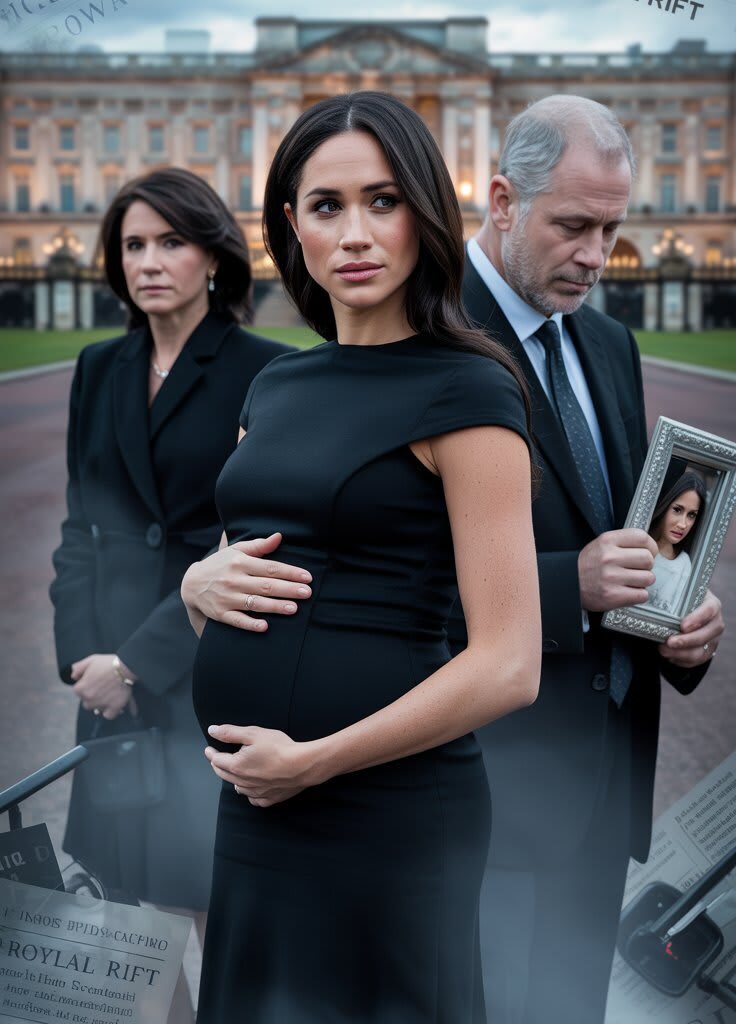Samantha Markle, Meghan Markle’s estranged half-sister, has reignited the firestorm of controversy surrounding the Duchess of Sussex—and this time, the allegations are more personal, more intimate, and more disturbing than ever before.
In a gripping new interview, Samantha didn’t just speak—she detonated a narrative bomb. At the heart of her claims lies a chilling suggestion: that Meghan’s royal image is built not only on silence but on secrets too dark to ignore.
Samantha recalls growing up in a California home where strange smells—like burning wire—wafted from the downstairs rooms. At the time, she dismissed them. Only later did someone suggest to her that it might have been crack cocaine. She says her brother, Tom Jr., once witnessed their mother, Doria Ragland, cooking something suspicious on the stove.
While recreational drug use might not raise eyebrows in 1970s California, Samantha’s concern isn’t historical—it’s maternal. If these claims are true, she fears such exposure may have affected Meghan in the womb. Citing psychiatric research, she linked potential in-utero exposure to traits like narcissism and emotional detachment—traits she accuses Meghan of displaying today.
But her most shocking allegations don’t stop there.
According to Samantha, Meghan’s former husband, Trevor Engelson, once confided to others that Meghan could not have children. Samantha wasn’t present when this was said, but she claims her brother heard it directly and believes it to be true. This resurfaced old rumors that Meghan’s children may have been born through surrogacy—something the couple has never confirmed nor denied.
And then there’s the alleged “moon bump” theory. Samantha describes watching Meghan throughout her pregnancy with growing disbelief. She questions how someone allegedly eight months pregnant could gracefully bend down in high heels without hesitation. More curious still, she says palace staff were reportedly banned from touching Meghan’s belly, and even royal doctors were allegedly denied access for physical checks. “If everything was normal,” Samantha asks, “why all the secrecy?”
She points o inconsistencies in photographs—Meghan’s bump appearing to shift, wobble, or seemingly deflate in certain images. She recalls a clip of Meghan in a checkered dress where her stomach swayed in a way Samantha argues is physiologically impossible for a real pregnancy. For her, it wasn’t conspiracy—it was confirmation.
Samantha’s claims don’t stop at physiology—they stretch into the emotional realm. She accuses Meghan of weaponizing secrecy to control the royal narrative from the beginning. From keeping her father Thomas Markle away from Harry before the engagement to cutting off family ties without explanation, she believes Meghan meticulously curated her image while silencing inconvenient truths.
What’s more, Samantha believes that Thomas Markle’s health issues—two heart attacks and a stroke—were worsened by the emotional toll of being publicly abandoned by his daughter. “This isn’t about gossip,” she said. “This is about a father who just wanted to walk his daughter down the aisle and now may never meet his grandchildren.”
But the emotional gravity doesn’t end with Thomas. Samantha draws attention to King Charles as well, now also battling serious health issues. These are two grandfathers, aging rapidly, with little access to their royal grandchildren. For Samantha, this isn’t just tragic—it’s a moral failing on Meghan and Harry’s part.
And still, the silence remains.
Samantha challenges Meghan and Harry to release documentation—anything that could put the rumors to rest: birth certificates, medical records, even a DNA test. “If there’s truly nothing to hide, why let the world keep guessing?” she asks.
At the core of Samantha’s frustration lies what she sees as Meghan’s complete rewriting of her past. The Meghan who once praised her “daddy” on her lifestyle blog is gone, replaced by a duchess who now describes her upbringing as toxic and traumatic. To Samantha, this isn’t just betrayal—it’s erasure.
Even Meghan’s own children, she fears, are being raised in a world where family is secondary to narrative, where truth is filtered through optics and brand strategy. “What happens when those children grow up and start asking questions?” she asks. “What kind of answers will they be given?”
Samantha’s voice is raw and impassioned—not just that of a scorned relative but of someone mourning a version of her sister that no longer exists. Her message, beneath all the accusations, is simple: the truth matters—not for gossip columns, but for healing, for reconciliation, and for the children caught in the middle.
Because in the end, behind every palace wall, behind every media headline, there are just people. People with fractured hearts and families hanging by threads. And unless something changes soon, that thread might snap—for good.
